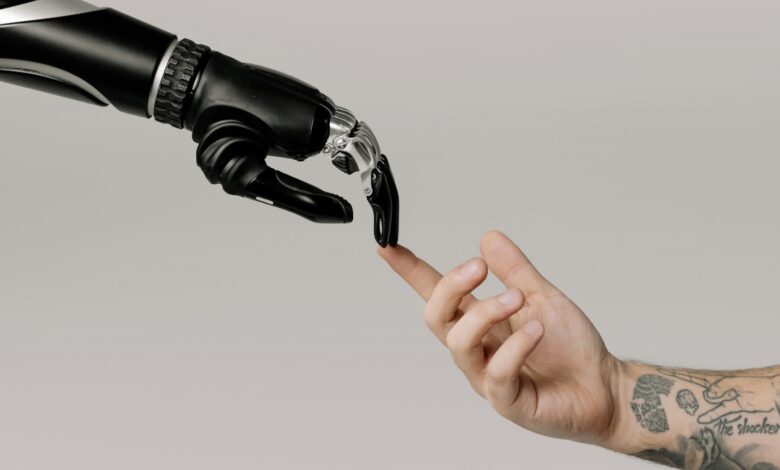
Artificial intelligence (AI) is no longer a futuristic concept. It’s a defining force of today’s economy. From healthcare to manufacturing, retail to education, AI is transforming the way industries operate, improving efficiency, accuracy, and innovation. But as technology evolves at lightning speed, one major challenge has emerged: the growing skills gap.
The skills gap refers to the divide between the capabilities that employers need and the skills that professionals currently have. As automation and AI continue to reshape workplaces, many professionals are finding that their existing knowledge isn’t enough to keep up. Jobs aren’t disappearing as much as they’re changing, requiring a new blend of technical expertise, analytical thinking, and adaptability.
Bridging this gap isn’t just about learning how to use new tools. It’s about understanding how AI integrates into decision-making, strategy, and problem-solving. The future belongs to those who are ready to learn, evolve, and embrace change through education.
The Role of Advanced Education in Closing the AI Skills Gap
In the modern workforce, having basic computer literacy or technical know-how is no longer sufficient. Employers are seeking professionals who can not only work with AI systems but also understand how to design, manage, and apply them responsibly. That’s where advanced education becomes crucial. It’s the bridge between where the workforce is and where it needs to be.
While online tutorials and short courses can provide foundational knowledge, they often lack the depth required to understand AI’s complexities, from machine learning models to ethical implications. Structured academic programs provide a more comprehensive approach, combining theory with practical application. They help professionals gain a deeper understanding of how AI works, how data is processed, and how algorithms influence decision-making.
For those who want to enhance their technical expertise and prepare for leadership roles in this field, pursuing an online Masters degree in Artificial Intelligence can be a game-changer. These programs are designed for working professionals who want to advance their careers without stepping away from their current roles. You can explore topics such as data analytics, machine learning, and robotics, all while learning how to apply AI ethically and strategically across industries. The flexibility of online learning lets you study at your own pace while building practical, hands-on experience that equips you to handle real-world AI challenges with confidence.
An advanced degree doesn’t just build technical proficiency. It enhances your ability to think critically, manage AI-driven projects, and make informed business decisions. By combining education with professional experience, you’ll be better equipped to close the skills gap and stand out in an increasingly competitive job market.
Understanding the Skills Gap: What’s Missing in Today’s Workforce
The AI skills gap isn’t about a lack of intelligence. It’s about the rapid evolution of technology outpacing education and training systems. Many professionals understand how to use software powered by AI, but few grasp how these systems are developed, how they make predictions, or how to evaluate their accuracy and fairness.
Employers are looking for people who can interpret data, understand algorithms, and apply insights to improve business operations. Critical thinking, data literacy, and ethical reasoning are becoming just as important as coding and programming. Yet, these interdisciplinary skills aren’t always covered in traditional education or on-the-job training.
Bridging this gap requires a proactive approach: continuous learning, exposure to emerging technologies, and a willingness to adapt to new roles. Those who invest in understanding AI holistically both its technical and human sides will be the ones leading innovation in the years ahead.
Lifelong Learning: The New Professional Mindset
In a world where technology changes overnight, lifelong learning isn’t optional—it’s essential. The concept of education as a one-time event is outdated. Instead, professionals must view learning as an ongoing journey.
AI is advancing faster than any previous technological revolution, meaning that what you learn today might evolve within a year. By adopting a growth mindset, you stay prepared for whatever comes next. That could mean enrolling in new courses, attending workshops, or earning certifications that expand your knowledge base.
Advanced education programs are particularly effective in fostering this mindset. They encourage curiosity, research, and adaptability, skills that help you stay relevant as industries evolve. Continuous learning also builds confidence, enabling you to take on leadership roles in an environment defined by constant change.
The Industries Most Affected by AI, and the Opportunities Within
Artificial intelligence is transforming virtually every sector, but its impact is most visible in industries that rely on data and automation. In healthcare, AI assists doctors by analyzing medical images and predicting treatment outcomes. In finance, algorithms detect fraud and optimize investments. In manufacturing, automation reduces waste and increases precision. Even education and marketing are leveraging AI to personalize experiences.
While this technological shift has created new opportunities, it has also left many professionals struggling to keep pace. The demand for data scientists, AI engineers, and machine learning specialists far exceeds the supply. However, this gap also represents opportunity; those willing to learn can step into roles that didn’t exist a decade ago.
By developing AI expertise through advanced education, you position yourself for diverse roles across industries. Whether your goal is to create smarter technology, lead digital transformation, or analyze data to make informed decisions, your skills will be in demand.
The Human Side of the AI Revolution
Despite AI’s incredible capabilities, it cannot replace human creativity, empathy, or ethical judgment. Machines can process data faster than humans, but they can’t understand context or emotion in the same way. That’s why the most effective AI systems are built and guided by people who understand both technology and humanity.
Professionals with advanced AI education learn how to balance innovation with responsibility. They explore the ethical implications of AI, bias, privacy, and transparency, and how to ensure that technology serves society fairly. This human perspective is what keeps AI development grounded in purpose rather than profit alone.
Bridging the Gap Through Collaboration and Policy
Closing the AI skills gap isn’t something individuals can do alone. It requires collaboration between educators, employers, and policymakers. Businesses can invest in upskilling their workforce through training programs, mentorship, and professional development opportunities. Educational institutions can update curricula to include AI-related subjects and interdisciplinary learning.
Policymakers can also play a part by funding programs that make AI education more accessible and inclusive. By encouraging partnerships between industry and academia, governments can help create pipelines of skilled professionals ready to meet the demands of the AI economy.
The rise of artificial intelligence doesn’t signal the end of human work. It signals a new beginning. The AI revolution offers opportunities for those ready to adapt, learn, and grow. Bridging the skills gap starts with understanding that knowledge is the most valuable resource in this new era.
Advanced education gives you the tools to move from being a user of technology to a creator and leader in it.
In the end, the key to thriving in the age of AI isn’t just knowing how technology works. It’s knowing how to think critically, act ethically, and innovate with purpose. The more we invest in our skills, the more we ensure that the future of work remains human at its core.




